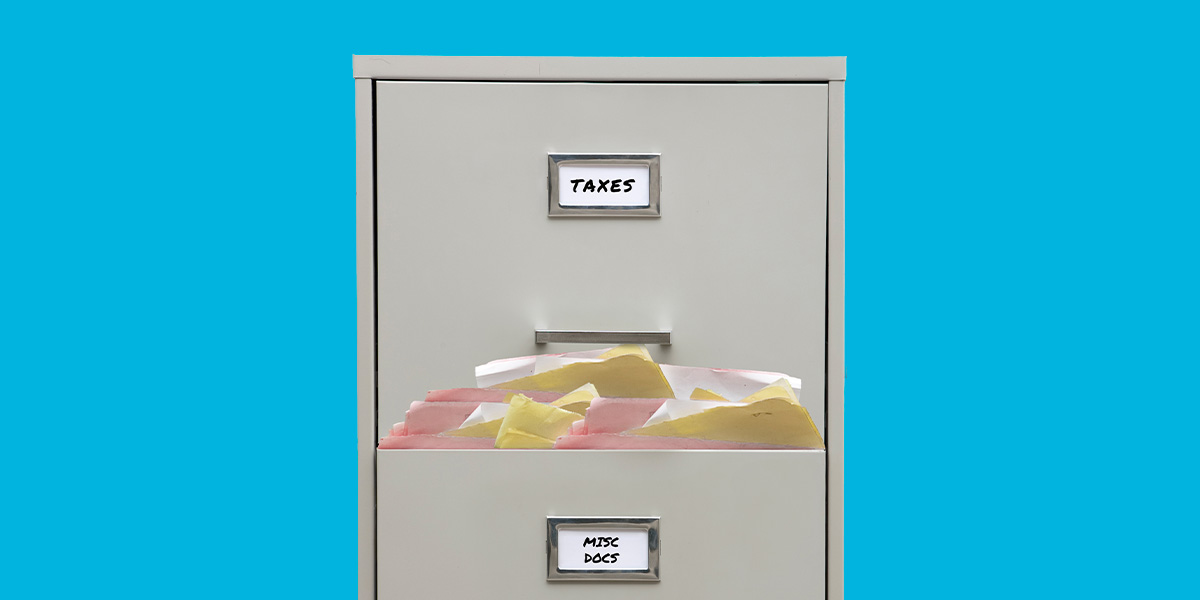-
Personal Banking -
Insights
Prenups: Why You Should Consider One
There's a familiar stigma that goes along with a prenuptial agreement, which is that it grants one member of a couple — typically the wealthier partner — protection for their money while disenfranchising the other, less wealthy partner.
The truth, however, is that while a prenup may seem contrary to the very notion of true love, more couples are opting for the contract and are doing so in a mutually agreed upon way. And good prenups do not have to be one-sided.
According to a survey of the American Academy of Matrimonial Lawyers (AAML), 51% of the attorneys who responded cited an increase in the number of Millennials requesting prenuptial agreements.
In addition, 62% said they have seen an increase over the past three years in the total number of clients who are seeking prenups.
According to the survey, the three items most commonly covered by the marriage contracts are:
- protection of separate property, such as businesses and family heirlooms or real estate;
- alimony and spousal maintenance, to ensure both partners would be able to maintain their lifestyle in the event of a split;
- division of property, allowing the couple to decide how to split assets rather than going to court or relying on state law.
Rather than viewing a prenuptial agreement as divisive, think of it as a key tool in getting you and your partner to speak openly about wealth, debt and savings.
It can also help each person get a better understanding of their partner's distinct approach to finances. And it's useful in allowing you to choose how to protect specific assets and ensure financial stability in the event of a divorce.
Prenups Can Be Beneficial to Both Partners, Even If One Has More Wealth
"Talking about this kind of contract can be a fantastic way to start an open, honest and healthy dialogue about money and financial goals," said Jason Niell, national trust administration manager for City National Bank Trust and Estate Services.
It gives couples a chance to see what assets they will collectively own as well as what debts they have. If there are any financial values they're not aligned on, it gives them an opportunity to find a middle ground before tying the knot.
Rather than being a negative way to start your life together, a prenup can help you and your partner form a contract that allows both of you to feel confident and secure from the beginning.
Protecting Separate Property
Today's younger generations are marrying later than previous generations, with years to build up their own assets and debt.
Younger couples are opting to protect the wealth they built or inherited prior to getting married — known as separate property — while sharing other assets that they will accumulate during the marriage.
Niell underscored that a prenup agreement can also protect less tangible, but equally important assets aside from money and property.
“A lot of people think of someone's wealth as their income or their invested assets, but as we know, it's much more than that, and that's where an expert comes in. They can help you protect things like a family business, or an interest in another business, or even intellectual property," said Niell. “People are inheriting wealth through different means and different avenues and it's vital to evaluate which of them you'd like to protect in the event of divorce."
Niell also noted that a prenup is not just about protecting people's assets. It can also be a useful way to shield a prospective spouse from winding up responsible for something undesirable, such as debt.
“A prenuptial contract can ensure that the spouse who didn't incur the debt before the marriage isn't responsible for taking it on in the event of a divorce," he said.
Niell added that there may be sentimental assets that one partner may want to protect.
“You can use the contract to protect anything of value to you," he said. “A family heirloom like art, a summer home or your grandmother's wedding ring are all things people can protect in a prenup."
Spousal Maintenance
Niell noted that rather than merely protecting the assets of the wealthier member of the couple, a prenup can also provide peace of mind to the less wealthy partner, due to the knowledge that they will have a financial cushion to help them maintain their standard of living if the marriage ends.
“Sometimes prenuptial contracts can actually be a healthy thing for the spouse who is not bringing a lot financially into the relationship. It's sort of a safety net in a financially unbalanced situation to know that if things don't work out, they can sustain their lifestyle," Niell said.
Choosing How to Divide Assets
Having a prenup in place before things go wrong ensures that it's the couple, not the court, who decides what happens in the event of a divorce.
It's also important to note that what can go into a prenup varies by state, which is why it's essential to rely on an expert who's familiar with state law to draw up any agreement.
“Contracts like prenups are really in place for when things go wrong. Nobody likes to believe something will go wrong - but it can. And a prenuptial agreement can help things go more smoothly for both parties if there's a divorce," said Niell.
However, one issue that can potentially nullify a prenup is if partners co-mingle their assets contrary to agreement reached in the prenup, making it very difficult for the courts to distinguish with precision between each partner's individual holdings.
“If you're going to have a prenup, you have to live up to that agreement. If in the document you say something along the lines of 'What's mine is mine and what's yours is yours,' then you must continue to keep things separate during the marriage." said Niell. "But if you don't keep assets separate and start commingling things, then there's a question about whether you're really living up to the terms of the prenup that you've created. If you don't live up to the contract, then there's potentially a cause to dispute the prenup."
How to Start a Conversation Around a Prenuptial Agreement
While the term “prenup" can sometimes trigger emotional conversations between an engaged couple and their families, calling it a “separation of property agreement" may ease the tension, suggested Niell.
Understanding how a prenuptial agreement works, when to discuss it, who can help you navigate the terms and what happens without one may clear a path for a more positive discussion about mingling finances during a marriage.
Start Prenup Discussions Early
When families have a prenup conversation early—perhaps even before the younger members have met their future partner—it reduces the emotion attached to the topic. The focus should be on how a prenup can protect the family's wealth and legacy, and not an emotional reaction to the person joining the family.
“It's best to tell kids at 18 or as soon as they start dating seriously so they're aware early that a prenup is a smart way to protect the family," said Niell. “It should be broached when the kids start dating to avoid the idea of a prenup being about an individual."
As soon as a relationship gets serious and there's a possibility of marriage in the future, the partner whose family will want a prenuptial agreement should mention it, said Niell.
“There's less of a chance of anger if there's no surprise involved when asking for a prenup before the marriage," Niell added.
What Is a Postnuptial Agreement?
After the marriage takes place, there's also the option of updating or replacing a prenup with a postnuptial agreement. This can be used to make changes brought on by significant life events or to amend a prenup if it was hastily entered into before the marriage.
“Renegotiating a prenuptial agreement is possible if both sides agree to make changes," said Niell. “It's far more common though for a couple who's been married for 20 years or longer to terminate the prenup with a notarized statement and then use a will and trusts to manage their finances."
While there may never be a perfect time to broach the subject, doing it early, honestly and sensitively can help remove a lot of the emotion and maintain family harmony going into what should be a happy occasion.
Wealth Managers and Lawyers Can Help You Create a Plan
Prenuptial agreements should be a talking point for a wealth manager to discuss with a high-net-worth family or individual, said Niell.
“We can't make anyone agree to a prenuptial agreement, but we can explain why they're an important part of any wealth plan," said Niell. “If their child won't push for a prenuptial agreement or the partner balks, we can work with the family to protect their assets through estate planning."
Lawyers have an important role to play by drafting a prenuptial agreement, said Niell.
“A prenup works best if both parties are there with their lawyers to negotiate the agreement," said Niell.
One way to ease someone into the idea of a prenup is to bring up the idea of a cohabitation agreement, which can be appropriate for a couple that's serious but not yet—or perhaps never will be—contemplating marriage.
The agreement can cover many of the same elements of a prenup for couples in a common-law relationship, such as establishing who has rights to what property and end-of-relationship issues, such as debt and financial support.
If the relationship doesn't last long enough to reach common-law status, it could still be helpful by establishing which partner is responsible for which expenses and who moves out and in what timeframe when the relationship ends.
“A separate property agreement can work for couples who live together without being married to establish who owns what, since they can't do a prenuptial agreement," said Niell.
This article is for general information and education only. It is provided as a courtesy to the clients and friends of City National Bank (City National). City National does not warrant that it is accurate or complete. Opinions expressed and estimates or projections given are those of the authors or persons quoted as of the date of the article with no obligation to update or notify of inaccuracy or change. This article may not be reproduced, distributed or further published by any person without the written consent of City National. Please cite source when quoting.
City National, its managed affiliates and subsidiaries, as a matter of policy, do not give tax, accounting, regulatory or legal advice. Rules in the areas of law, tax, and accounting are subject to change and open to varying interpretations. You should consult with your other advisors on the tax, accounting and legal implications of actions you may take based on any strategies presented, taking into account your own particular circumstances.





